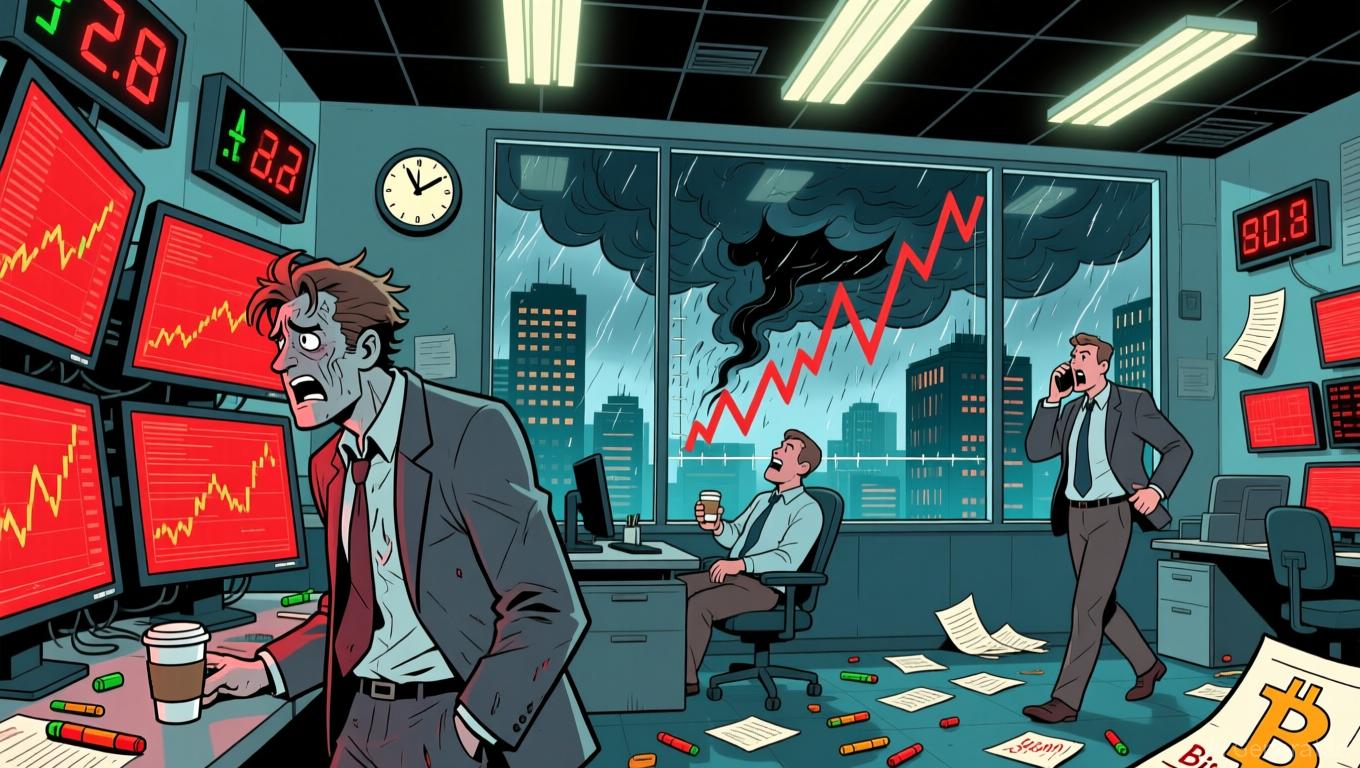Fed Focuses on Controlling Inflation Rather Than Boosting Economic Growth
- The Boston Fed urges delaying rate cuts until inflation nears 2% target, citing risks of premature easing in a still-inflationary environment. - Atlanta Fed's Bostic emphasizes inflation as the "clearer and more urgent risk" over labor market signals, reflecting hawkish policy divisions. - Fed officials consider resuming asset purchases post-October rate cut to maintain liquidity while avoiding inflationary spikes from tariffs. - Policy balancing act emerges: rate cuts could stimulate growth but risk rei
The Boston branch of the Federal Reserve has adopted a prudent stance regarding interest rate reductions, stressing the dangers of acting too soon while inflation remains a concern. In a statement issued this week, the Boston Fed reaffirmed its intention to keep the federal funds rate steady until there is "definitive proof" that inflation is moving toward the central bank’s 2% objective, referencing a
Bostic, recognized as a leading advocate for tighter policy within the Fed, has repeatedly maintained that inflation poses a "more obvious and pressing threat" than the mixed signals coming from the job market, according to a
This careful approach is also evident in the Fed’s management of its balance sheet. After lowering rates in October, central bank officials have hinted at the possibility of resuming asset purchases to ensure sufficient liquidity as economic activity picks up, according to a
The interaction of these strategies underscores the central bank’s need to strike a careful balance. While lowering rates could help spur economic growth, it also carries the risk of sparking renewed inflation, a worry encapsulated in the Boston Fed’s reference to the "inflation monster." This phrase, frequently used by policymakers, expresses concerns about a scenario where rising prices become entrenched, potentially requiring forceful intervention later, as outlined in the
As the Fed contends with these competing pressures, the future course remains unclear. With Bostic’s upcoming departure and mounting political calls for rate reductions, the central bank is under increasing scrutiny. Nevertheless, as the Boston Fed and other policy hawks warn, easing policy too soon—especially while inflationary forces persist—may pose greater risks than rewards.
Disclaimer: The content of this article solely reflects the author's opinion and does not represent the platform in any capacity. This article is not intended to serve as a reference for making investment decisions.
You may also like
Bitcoin Updates: Crypto Fear Index at 15—Is This Surrender or a Chance to Invest?
- Crypto Fear & Greed Index hit 15, a seven-month low, signaling extreme investor pessimism amid macroeconomic and regulatory pressures. - Historical data suggests such fear phases often precede market recoveries, with Bitcoin near 2022 rebound levels and Ethereum whale buying surging. - Bitcoin ETFs saw $523M inflows as institutional demand returns, contrasting Ethereum's outflows and Brazil/Japan's new regulatory crackdowns. - Analysts urge long-term investors to view the dip as an opportunity, while sho

Bitcoin Updates: Japan Strives to Foster Crypto Advancements While Ensuring Investor Protection Amid DATs Decline
- Japan Exchange Group (JPX) plans stricter rules for digital-asset treasury (DAT) firms amid volatile stock collapses, including enhanced audits and backdoor listing restrictions. - Metaplanet and Convano, major DATs holding thousands of BTC, have lost over 60% of their value, reflecting global market instability linked to crypto-heavy strategies. - Regulators warn DATs pose risks to retail investors due to reliance on volatile assets, while Japan balances innovation incentives with governance safeguards

Ethereum News Update: Ethereum’s Unwavering Commitment to Decentralization Stands Strong Against Centralization Forces
- Vitalik Buterin and Ethereum Foundation researchers released the "Trustless Manifesto," advocating for decentralization and trustlessness as foundational blockchain principles. - The manifesto outlines three core laws: No Key Secrets, No Irreplaceable Intermediaries, and No Unverifiable Outputs to prevent permissionless access erosion. - Stored as an immutable on-chain smart contract, the document allows users to publicly pledge support, reinforcing Ethereum's commitment to trust neutrality. - Amid risin
Bitcoin Updates: Japan Strengthens Cryptocurrency Regulations to Protect Investors Following Market Downturns
- Japan's regulators tighten rules for Bitcoin-holding firms, targeting audit standards and backdoor listing loopholes. - Companies like Metaplanet and Convano face sharp share declines amid crypto market volatility and governance scrutiny. - JPX aims to close regulatory gaps by restricting shell acquisitions and enforcing transparency for crypto-focused restructurings. - FSA proposes mandatory registration for crypto custody services after a $312M hack, enhancing security oversight. - Stricter compliance
